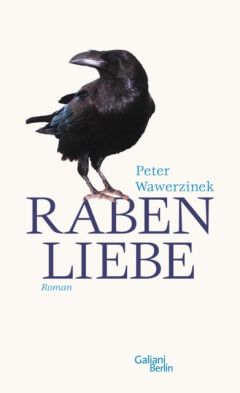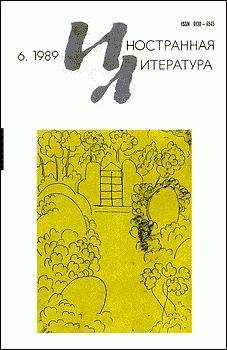Уильям Моэм - Английский язык с У. С. Моэмом. На окраине империи. Рассказы
interminable [In'tWmInqb(q)l], dungaree ["dANgq'ri: ], singlet ['sInglIt], corrugated ['kOrqgeItId], rough [rAf], utensil [ju:'tens(q)l]
His sunburn made his blue eyes look very pale and they were surrounded by wrinkles as though for long years he had spent interminable hours scanning the vacant sea. He wore dungarees and a singlet, patched, but neat and clean. The house to which he presently led us consisted of a single room with a roof of corrugated iron. There was a bed in it, some rough stools which he himself had made, a table, and his various household utensils. Under a tree in front of it was a table and a bench. Behind was an enclosed run for his chickens.
I cannot say that he was pleased to see us (не могу сказать, что он был рад видеть нас; pleased— довольный). He accepted our gifts as a right, without thanks (он принял наши дары как должное, без благодарностей;right— правильность, правота; право, привилегия), and grumbled a little because something or other he needed had not been brought (и немного поворчал, оттого, что что-то: «то или другое», что ему было необходимо, не привезли: «не было привезено»; toneed— нуждаться, иметь надобность). He was silent and morose (он был молчалив и угрюм). He was not interested in the news we had to give him (его не интересовали новости, которые мы хотели сообщить ему; to give— давать; сообщать), for the outside world was no concern of his (потому что внешний мир его совершенно не волновал: «не был его заботой»; concern— отношение, касательство; беспокойство, забота; участие, интерес): the only thing he cared about was his island (единственное, о чем он беспокоился — /был/ его остров; thing— вещь, предмет; нечто, что-то). He looked upon it with a jealous, proprietary right (он смотрел на него с ревностным правом собственности; proprietary— собственнический); he called it "my health resort" (он называл его "мой курорт"; health— здоровье;resort— прибежище; курорт) and he feared that the coconuts that covered it (и он боялся, что кокосовые пальмы, покрывающие его = растущие на нем) would tempt some enterprising trader (соблазнят какого-нибудь предприимчивого торговца; to tempt— уговаривать, склонять; соблазнять, прельщать;to enterprise— предпринимать;to trade— торговать).
accept [qk'sept], brought [brO: t], morose [mq'rqus], jealous ['dZelqs], proprietary [prq'praIqt(q)rI], enterprising ['entqpraIzIN]
I cannot say that he was pleased to see us. He accepted our gifts as a right, without thanks, and grumbled a little because something or other he needed had not been brought. He was silent and morose. He was not interested in the news we had to give him, for the outside world was no concern of his: the only thing he cared about was his island. He looked upon it with a jealous, proprietary right; he called it "my health resort" and he feared that the coconuts that covered it would tempt some enterprising trader.
He looked at me with suspicion (он взглянул на меня подозрительно: «с подозрением»). He was somberly curious to know what I was doing in these seas (он были исполнен мрачного любопытства, что я делал в этих морях; somber— темный; мрачный, унылый). He used words with difficulty (он с трудом подбирал слова: «он употреблял слова с трудностью»), talking to himself rather than to us (разговаривая, скорее, с самим собой, чем с нами), and it was a little uncanny to hear him mumble away as though we were not there (и было немного жутковато слышать, как он бормочет себе под нос, словно нас и не было /там/). But he was moved when my skipper told him (но он был растроган, когда капитан моего судна сказал ему; to move— двигать, передвигать; трогать, волновать) that an old man of his own age whom he had known for a long time was dead (что некий старик того же возраста что и он, которого он знал долгое время, умер; own— свой собственный, принадлежащий /кому-либо или чему-либо/).
"Old Charlie dead (старик Чарли мертв) — that’s too bad (это очень плохо). Old Charlie dead."
He repeated it over and over again (он повторял это снова и снова). I asked him if he read (я спросил его, читает ли он /что-нибудь/).
"Not much (не много)," he answered indifferently (ответил он равнодушно/безразличным тоном).
suspicion [sq'spIS(q)n], curious ['kju(q)rIqs], indifferently [In'dIf(q)rqntlI]
He looked at me with suspicion. He was somberly curious to know what I was doing in these seas. He used words with difficulty, talking to himself rather than to us, and it was a little uncanny to hear him mumble away as though we were not there. But he was moved when my skipper told him that an old man of his own age whom he had known for a long time was dead.
"Old Charlie dead — that’s too bad. Old Charlie dead."
He repeated it over and over again. I asked him if he read.
"Not much," he answered indifferently.
He seemed to be occupied with nothing (казалось, что он не был занят ничем; to occupy — занимать/место, пространство и т. п./;заниматься/чем-либо/,уделять время/чему-либо/) but his food (кроме своего пропитания; food — пища, питание, еда), his dogs (своих собак) and his chickens (и своих кур). If what they tell us in books were true (если то, что говорят нам в книгах, было бы правдой) his long communion with nature and the sea (то его долгое единение с природой и морем; communion — общность; общение, связь) should have taught him many subtle secrets (должно было бы научить его множеству искусных уловок; to teach — учить, обучать; научить; subtle — тонкий, нежный; искусный, умелый, ловкий; secret — секрет, тайна; загадка, нечто необъяснимое, скрытое). It hadn’t (но этого не было: «оно не /научило/»). He was a savage (он был дикарем). He was nothing but a narrow, ignorant and cantankerous seafaring man (он был просто: «ничем кроме как» ограниченным, невежественным и сварливым моряком; narrow — узкий, тесный; узкий, ограниченный/об уме и т. п./).
communion [kq'mju: nIqn], nature ['neItSq], taught [tO: t], subtle [sAtl], savage ['sxvIdZ], ignorant ['Ignqrqnt], cantankerous [kxn'txNk(q)rqs]
He seemed to be occupied with nothing but his food, his dogs and his chickens. If what they tell us in books were true his long communion with nature and the sea should have taught him many subtle secrets. It hadn’t. He was a savage. He was nothing but a narrow, ignorant and cantankerous seafaring man.
As I looked at the wrinkled, mean old face (когда я глядел на это морщинистое, неприветливое, старое лицо; wrinkle — морщина, складка; mean — посредственный, плохой; придирчивый, злобный) I wondered what was the story of those three dreadful years (мне было интересно, что же это была за история тех трех ужасных лет; story — повесть, рассказ; история) that had made him welcome this long imprisonment (которая заставила его желать этого долгого заточения; to welcome — приветствовать/гостя/;приветствовать, одобрять; prison — тюрьма; to imprison — заключать в тюрьму; imprisonment — тюремное заключение, лишение свободы). I sought to see behind those pale blue eyes of his (я пытался разглядеть за теми блеклыми голубыми глазами; to seek — искать, разыскивать; to seek to do smth. — пытаться, стараться что-либо сделать) what secrets they were that he would carry to his grave (что же за секреты это были, которые он унесет в могилу). And then I foresaw the end (а затем я предугадал конец; to foresee— предвидеть, знать заранее).
wrinkled ['rINk(q)ld], dreadful ['dredS(q)l], imprisonment [Im'prIz(q)nmqnt]
As I looked at the wrinkled, mean old face I wondered what was the story of those three dreadful years that had made him welcome this long imprisonment. I sought to see behind those pale blue eyes of his what secrets they were that he would carry to his grave. And then I foresaw the end.
One day a pearl fisher would land on the island (однажды какой-нибудь ловец жемчуга высадится на остров) and German Harry would not be waiting for him (и немец Гарри не будет ожидать его), silent and suspicious, at the water’s edge (молчаливый и подозрительный/недоверчивый, у кромки воды). He would go up to the hut (он /ловец жемчуга/ дойдет до хижины; to go up/to/ — подниматься /на гору и т. п./; приближаться, подходить) and there, lying on the bed, unrecognizable (и там, лежащим на кровати, неузнаваемым; to recognize— узнавать, опознавать), he would see all that remained of what had once been a man (он увидит все, что осталось от того, кто когда-то был человеком). Perhaps then he would hunt high and low (возможно, тогда он /ловец жемчуга/ будет рыскать повсюду; to hunt— охотиться, ловить; искать, рыскать;high— высоко;low— низко;high and low— повсюду, везде) for the great mass of pearls (в поисках того огромного количества жемчужин; mass— масса; множество, большое количество) that has haunted the fancy of so many adventurers (что волновало воображение такого большого числа авантюристов; to haunt— часто посещать, навещать /какое-либо место/; преследовать, тревожить, терзать /о мысли и т. п./;adventure— приключение; смелое предприятие, авантюра).
unrecognizable [An'rekqgnaIzqb(q)l], haunt [hO: nt], adventurer [qd'ventS(q)rq]
One day a pearl fisher would land on the island and German Harry would not be waiting for him, silent and suspicious, at the water’s edge. He would go up to the hut and there, lying on the bed, unrecognisable, he would see all that remained of what had once been a man. Perhaps then he would hunt high and low for the great mass of pearls that has haunted the fancy of so many adventurers.
But I do not believe he would find it (но не думаю, что он найдет его; to believe— верить; думать, полагать, считать): German Harry would have seen to it that none should discover the treasure (немец Гарри /заранее/ позаботится о том, чтобы никто не обнаружил это сокровище; to see to smth. — следить, присматривать, заботиться о чем-либо;to discover— открывать; обнаруживать, находить), and the pearls would rot in their hiding place (и жемчужины сгниют в тайнике; to hide— прятать;place— место). Then the pearl fisher would go back into his dinghy (тогда ловец жемчуга вернется назад, в свою корабельную шлюпку) and the island once more be deserted of man (и этот остров снова станет безлюдным; to desert— бросать, покидать;deserted— пустынный, безлюдный).
discover [dIs'kAvq], treasure ['treZq], deserted [dI'zWtId]
But I do not believe he would find it: German Harry would have seen to it that none should discover the treasure, and the pearls would rot in their hiding place. Then the pearl fisher would go back into his dinghy and the island once more be deserted of man.
Red
(Рыжий; red— красный; рыжий /о волосах/)
The skipper thrust his hand into one of his trouser pockets (шкипер засунул руку в карман своих брюк: «в один из своих брючных карманов») and with difficulty, for they were not at the sides but in front (и с трудом, так как они были не по бокам, а спереди; side— сторона; бок) and he was a portly man (а он был полным мужчиной), pulled out a large silver watch (вытащил большие серебряные часы; watch— карманные, наручные часы). He looked at it (он посмотрел на них) and then looked again at the declining sun (и затем посмотрел опять на заходящее солнце). The Kanaka at the wheel gave him a glance (канак у штурвала взглянул на него: «дал ему мимолетный взгляд»; Kanaka— канак /коренной житель Гавайских и др. островов Полинезии/), but did not speak (но /ничего/ не сказал). The skipper’s eyes rested on the island they were approaching (глаза = взгляд шкипера остановился на острове, /к которому/ они приближались; to rest— отдыхать; остановиться, лежать /о взгляде/). A white line of foam marked the reef (белая полоска пены выдавала риф; line — линия, mark — знак; метка). He knew there was an opening (он знал, там был проход; opening — отверстие, щель; канал, пролив) large enough to get his ship through (достаточно большой, /чтобы/ провести свое судно через /него/; to get through — пройти через что-либо), and when they came a little nearer (и когда они подойдут немного ближе) he counted on seeing it (он рассчитывал увидеть его). They had nearly an hour of daylight still before them (у них был почти час в запасе до захода солнца: «час дневного времени/света еще впереди них»). In the lagoon the water was deep (в лагуне было глубоко: «вода была глубокой») and they could anchor comfortably (и они могли удобно встать на якорь;to anchor— бросить якорь, стать на якорь). The chief of the village, which he could already see among the coconut trees (вождь деревни, которого он уже мог видеть среди кокосовых пальм; tree— дерево) was a friend of the mate’s (был другом помощника капитана; mate— приятель; подручный, помощник), and it would be pleasant to go ashore for the night (и было бы здорово сойти на берег на ночь; to please— радовать; нравиться; хотеть). The mate came forward at that minute (в эту минуту подошел помощник; come forward— выходить вперед, выдвигаться) and the skipper turned to him (и шкипер повернулся к нему).



